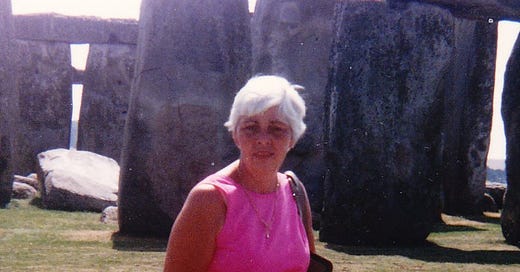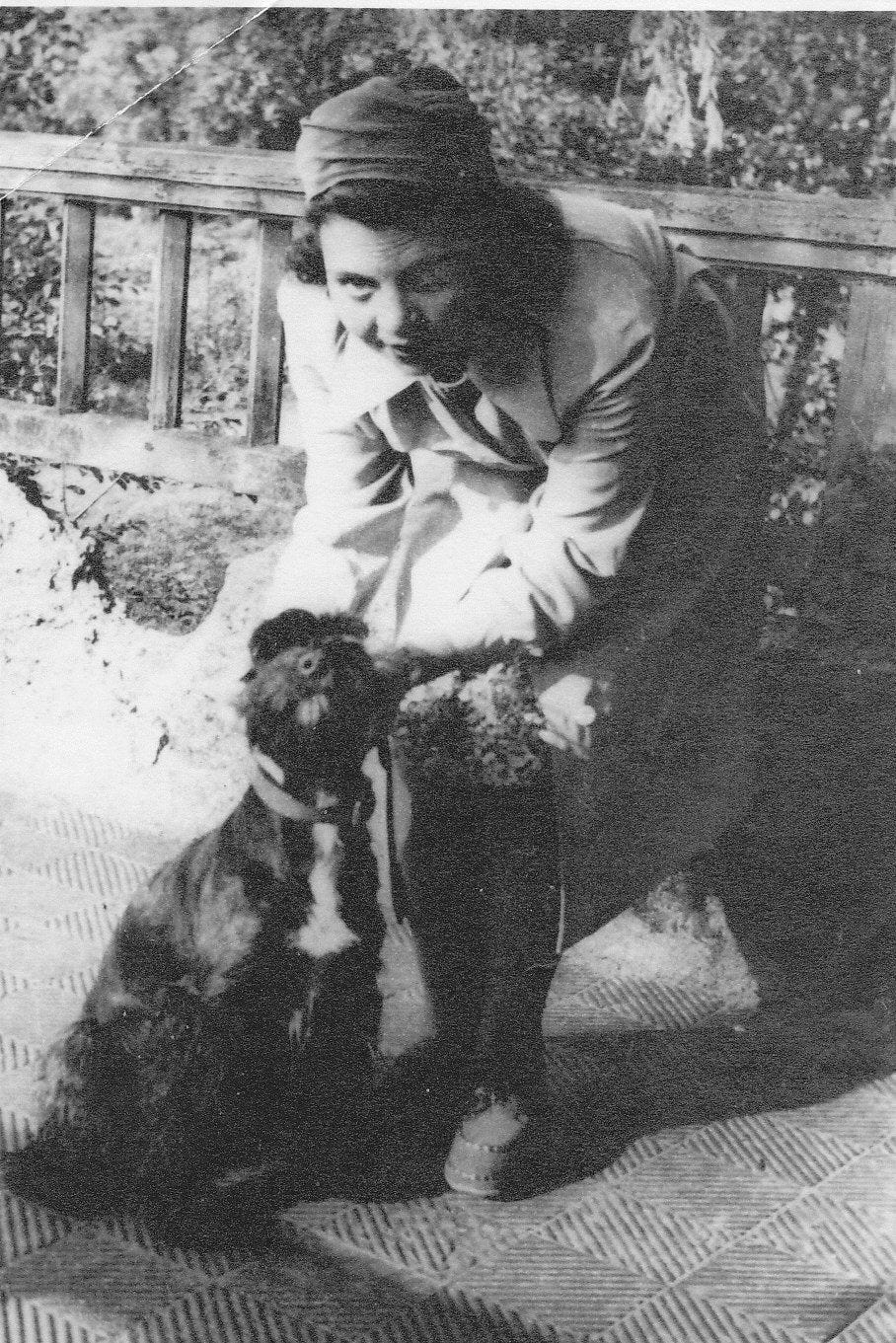Elfriede Gisele Smith: October 20, 1928-July 2, 1999.
Mum died twenty-six years ago today in a world long past. The final year of the twentieth century was, for the most part, still analogue, as the internet was in its infancy.
Then, people, at least in the Western world, had greater faith that their democracies could see them through tough times than we do now. The past was the past, the present was the present, and the future to come seemed hopeful rather than what it turned out to be—a shit show of unimaginable proportions.
I don't think it would have surprised my mother how things turned out for society in the years that followed her death.
She once said.
Your father was always more optimistic than I. He never grew up under totalitarianism.
Mum was born to a single mother in Hamburg, Germany, during the autumn of 1928. Her dad was a socialist gadfly who didn't take kindly to social conventions or Nazis.
Her mother was a woman of bohemian attitudes that masked the heart of a born survivor.
My mother's childhood was chaotic and traumatic. It was an age of uncertainty and terror because the adult world around her at first resisted Nazism and then coped with it after Hitler plunged their society into the darkness of fascism, intolerance, 24/7 state propaganda, the genocide of Jewish citizens and a war of unfathomable barbarity and destruction.
It taught her to distrust those in politics or business who promised happy endings.
So much time has transpired since she was alive. Yet my thoughts are drawn to recalling her for a moment or two on most days.
There is a warmth to my memories of my mother when she was alive. Thinking of her touches me in the manner of sunlight at dusk in springtime when it caresses my face.
There was much love within my mother. But also melancholy and anger for the many things denied her, for being born a woman in 1928.
To me, the life my mother lived is like a painting that I stare at, attempting to decipher her. Sometimes I think I've reached the truth of who she was. At other times, a profound, impenetrable mystery surrounds her memory.
She didn't live long enough for me to mature into someone who saw her as an individual outside of being my mother. I regret that we never became friends in old age like I did with my father.
My mother had great empathy and a novelist's perception of human character and their foibles. She liked parties, laughter, books, friendship, dancing, drinking, compliments, and restaurants that didn't have to be expensive but had to know how to present a good table.
Mum was a forgiving woman to others who could never forgive her trespasses or the times, as humans do; she betrayed others for self-interest.
No question, my father loved her, and she- him. Near the time of her dying. Mum said,
"I am glad I could give your father the love he needed to survive."
Dad tried to give her an existence worthy of that sacrifice. But the fates weren't kind. My brother became ill with schizophrenia during their golden years. That changed their retirement plans from caring for their needs to becoming caregivers to a son who drew the short genetic straw in our family.
The times before all of that unravelling of our nuclear family from mental illness in my adolescence, when my brothers were becoming young men, weren't great either. It was normal family dysfunction produced during the dying days of the Welfare State. When I recall some episodes from my teenage years, they feel like scenes from a Long Day's Journey into Night performed by a summer suburban troop of actors.
In the late 1970s and 1980s, neither our parents nor we, their children, knew how to chill- except Dad.
He wanted to make everybody happy and help those he loved find their dreams. But the dreams my brothers and I held for our lives were tangled with the traumas endured long ago by our parents.
The unspeakable horrors of hunger, homelessness, abuse both physical and sexual or the cruelty of Nazism has a half-life for its victims as long as radioactive waste. It's toxic forever. So, my parents had scars from all of that. It made them fascinating people, loving, kind, full of life not boring but profoundly fucked up.
When my mum lay dying, she did not want to leave. She was afraid. Mum was also angry at the gambler's table of life. It had cheated her too quickly out of her chips. She struggled with death and sometimes lashed out at me for crying too much. "It's hard enough as it is, John."
But the thrashing, the gnashing against mortality's tick down, and the hope it was only a bad dream didn't last long. It rarely does, from what I have seen of death and people's last breaths.
When she died. Her body was like a husk. Looking at it, I knew Mum had checked out of the body. It was a hotel room now, never to be occupied again.
Her corpse was bereft of her vitality, femininity, loyalty, laughter, hurt, pride, empathy, generosity, love, vanity, and beauty. It was as desolate as the desert.
Twenty-six years gone, and her dying still has grief's stinging venom, clawed into me.
For the last 18 months, I've pieced together my Dad's Green and Pleasant Land, which was unfinished at the time of his death. It's done apart for some minor adjustments that are required. It covers his life from 1923 to July 1945 concluding with Labour winning the General election.
Like my Dad's 5 other books written during those last years of life, The Green and Pleasant Land is an exploration of his generation during the eras before and after the creation of the Welfare State.
Your support keeps me housed and allows me to preserve the legacy of Harry Leslie Smith. Your subscriptions are crucial to my personal survival because like so many others who struggle to keep afloat, my survival is a precarious daily undertaking. The fight to keep going was made worse- thanks to getting cancer along with lung disease and other comorbidities which makes life more difficult to combat in these cost-of-living crisis times. I promise the content is good, relevant and thoughtful. But if you can’t it is all good too because we are in the same boat. Take Care, John




